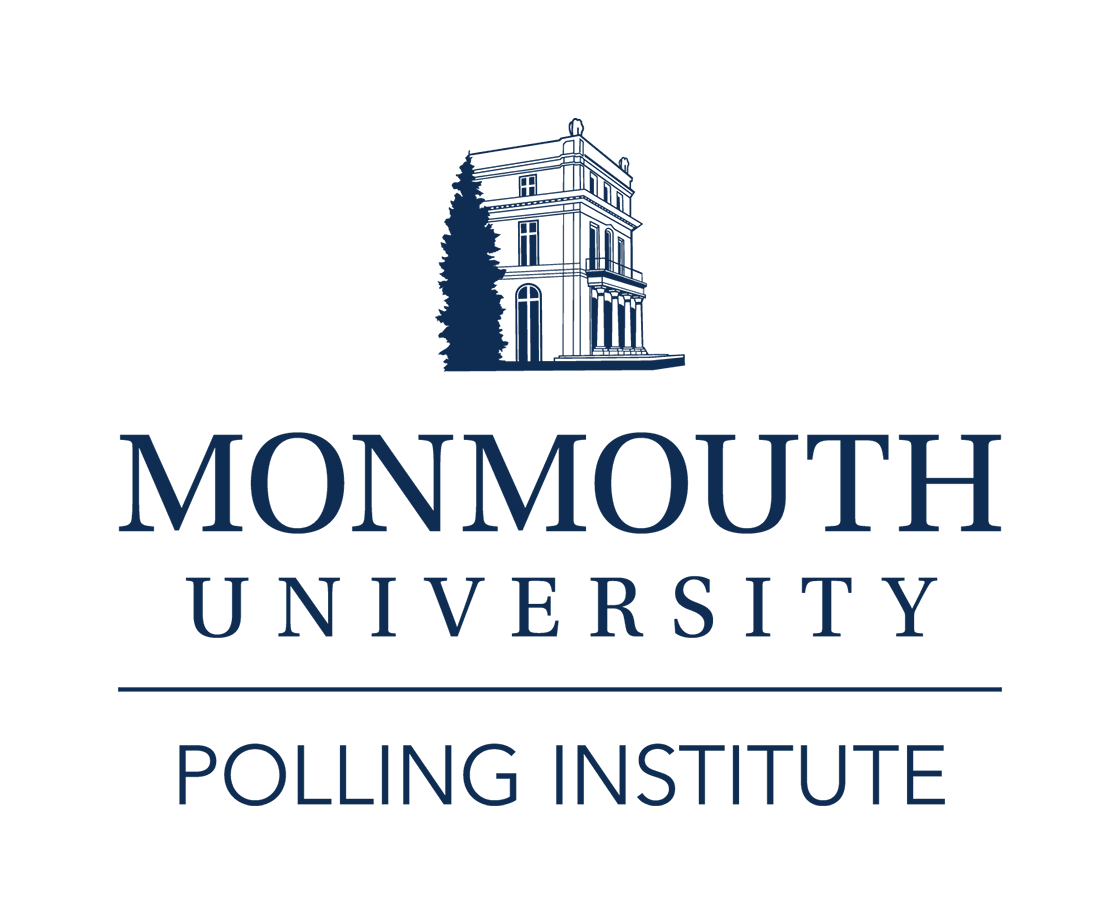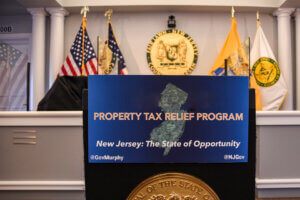The latest Monmouth University/Gannett New Jersey Poll finds that Garden State residents continue to value the importance of diversity in society. However, fewer think they will see it in their lifetime when compared to the outlook after Barack Obama’s election as the nation’s first black president.
In New Jersey, one of the most racially and ethnically diverse states in the country, the Obama presidency appears to have had an impact on residents’ views of integration as a societal goal. Fully 63% of New Jerseyans say that it is important for people of different races and ethnic groups to live, go to school and work closely together. Another 32% feel that a fully integrated society is not that important as long as everyone is treated fairly and has the same opportunities.
The percentage of New Jersey residents who prefer more societal integration is nearly identical to the 62% who said the same right before Obama’s inauguration in January 2009. These two poll results are higher than readings prior to the Obama presidency, ranging from 43% in 1996 to 54% in 2007.
Currently, 40% of New Jerseyans believe that blacks and whites are generally treated equally in our society and another 21% think they will see equal treatment in their lifetimes. The number who currently feel that equality has been achieved is nearly identical to the 38% who felt that way when Obama entered office (and higher than the 30% measured in 2004).
On the other hand, 35% believe that they will never see equal treatment of the races. This marks an increase from 25% in 2009 and puts it closer to the 41% level seen in 2004. Both white and minority New Jerseyans have become similarly more pessimistic on this expectation.
“Obama’s presidency seems to have moved opinion on the value of having racial diversity in all aspects of society. But it’s unclear whether the last two years have met the early expectations,” said Patrick Murray, director of the Monmouth University Polling Institute.
Just 1-in-3 (34%) New Jerseyans believe that the Obama presidency has helped race relations in this country, compared to 24% who say that he has actually hurt them. Another 39% say the Obama presidency has made little difference to race relations in the US. This is in stark contrast to the public’s expectations when he took the oath of office. In January 2009, nearly 2-in-3 (65%) New Jerseyans believed that the Obama presidency would help race relations, compared to just 4% who believed his leadership would hurt race relations.
The current poll also found little change over the past few years in the view that families of different races or ethnicities would be welcomed into Garden State neighborhoods. About half (49%) of New Jerseyans believe that their neighbors would openly welcome families of different backgrounds, 42% say that they would pay no attention to them, and just 3% believe such families would be actively discouraged from moving into their neighborhoods. These numbers are basically unchanged from polls conducted in 2009, 2007 and 1996.
The Monmouth University/Gannett New Jersey Press Media Poll was conducted by telephone with 801 New Jersey adults from September 15 to 19, 2010. This sample has a margin of error of ± 3.5 percent. The poll was conducted by the Monmouth University Polling Institute and originally published by the New Jersey Press Media newspaper group (Asbury Park Press, Courier-Post, Courier News, Daily Journal, Daily Record, and Home News Tribune).
DATA TABLES
The questions referred to in this release are as follows:
(* Some columns may not add to 100% due to rounding.)
1. In general, do you feel that blacks and whites are treated equally in our society, or not?
|
TOTAL | REGISTERED VOTER | PARTY ID | RACE |
AGE | |||||||
|
Yes | No | Dem | Ind | Rep | White | Black & Hisp | 18-34 | 35-54 |
55+ | ||
| Yes | 40% | 39% | 48% | 28% | 43% | 53% | 41% | 33% | 43% | 38% | 40% |
| No | 54% | 56% | 46% | 69% | 51% | 42% | 54% | 63% | 55% | 57% | 52% |
| (VOL) Don’t know | 5% | 5% | 5% | 3% | 6% | 4% | 6% | 3% | 2% | 5% | 8% |
| Unwtd N |
801 | 726 | 75 | 223 | 382 | 177 | 641 | 99 | 88 | 311 | 382 |
| TREND: | Sept. | Jan. 2009 | Jan. 2004* |
| Yes | 40% | 38% | 30% |
| No | 54% | 53% | 65% |
| (VOL) Don’t know | 5% | 9% | 5% |
| Unwtd N |
801 | 500 |
904 |
* Source: Eagleton-Rutgers Poll
2. Do you think you will see equal treatment for blacks and whites in your lifetime, or not?
|
TOTAL | REGISTERED VOTER | PARTY ID | RACE |
AGE | |||||||
|
Yes | No | Dem | Ind | Rep | White | Black & Hisp | 18-34 | 35-54 |
55+ | ||
| Already equal (from Q1) | 40% | 39% | 48% | 28% | 43% | 53% | 41% | 33% | 43% | 38% | 40% |
| Yes | 21% | 23% | 8% | 23% | 21% | 19% | 25% | 15% | 24% | 21% | 17% |
| No | 35% | 34% | 40% | 44% | 32% | 25% | 30% | 47% | 31% | 37% | 36% |
| (VOL) Don’t know | 4% | 4% | 4% | 5% | 3% | 3% | 4% | 5% | 1% | 4% | 6% |
| Unwtd N |
801 | 726 | 75 | 223 | 382 | 177 | 641 | 99 | 88 | 311 |
382 |
| TREND: | Sept. | Jan. 2009 | Jan. 2004* |
| Already equal (from Q1) | 40% | 38% | 30% |
| Yes | 21% | 29% | 26% |
| No | 35% | 25% | 41% |
| (VOL) Don’t know | 4% | 8% | 4% |
| Unwtd N |
801 | 500 |
904 |
* Source: Eagleton-Rutgers Poll
3. Which statement comes closer to the way you feel: It’s important that people of different races and ethnic groups live, go to school and work closely with each other, or it’s NOT important that people of different races and ethnic groups live, go to school and work closely with each other as long as everyone is treated fairly and has the same opportunities. [ITEMS WERE ROTATED]
|
TOTAL | REGISTERED VOTER | PARTY ID | RACE |
AGE | |||||||
|
Yes | No | Dem | Ind | Rep | White | Black & Hisp | 18-34 | 35-54 |
55+ | ||
| It IS important | 63% | 63% | 63% | 73% | 61% | 57% | 64% | 65% | 66% | 62% | 64% |
| It IS NOT important | 32% | 32% | 34% | 26% | 35% | 39% | 33% | 33% | 30% | 34% | 32% |
| (VOL) Don’t know | 4% | 4% | 3% | 2% | 5% | 5% | 4% | 2% | 4% | 4% | 4% |
| Unwtd N |
801 | 726 | 75 | 223 | 382 | 177 | 641 | 99 | 88 | 311 |
382 |
| TREND: | Sept. | Jan. 2009 | June 2007** | March 2004* | June 1999* | Aug. 1996** |
| It IS important | 63% | 62% | 54% | 50% | 51% | 43% |
| It IS NOT important | 32% | 33% | 43% | 46% | 48% | 54% |
| (VOL) Don’t know | 4% | 5% | 3% | 4% | 1% | 3% |
| Unwtd N |
801 | 500 | 1279 | 819 | 802 |
1203 |
* Source: Eagleton-Rutgers Poll
** Source: American Conference on Diversity NJ Poll
4. Let’s say that a family of a different race or ethnicity wanted to move into your neighborhood. Do you think people in your neighborhood would welcome the family, discourage them from moving in, or not pay any attention to them?
|
TOTAL | REGISTERED VOTER | PARTY ID | RACE |
AGE | |||||||
|
Yes | No | Dem | Ind | Rep | White | Black & Hisp | 18-34 | 35-54 |
55+ | ||
| Welcome them | 49% | 49% | 52% | 46% | 50% | 54% | 51% | 46% | 46% | 54% | 47% |
| Discourage them | 3% | 4% | 2% | 4% | 3% | 3% | 4% | 1% | 3% | 3% | 4% |
| Not pay attention | 42% | 43% | 40% | 46% | 43% | 38% | 39% | 49% | 49% | 39% | 41% |
| (VOL) Depends on which race/ethnicity | 1% | 1% | 1% | 1% | 1% | 2% | 1% | 2% | 2% | 1% | 0% |
| (VOL) Don’t know | 3% | 3% | 5% | 4% | 3% | 3% | 4% | 2% | 0% | 3% | 7% |
| Unwtd N |
801 | 726 | 75 | 223 | 382 | 177 | 641 | 99 | 88 | 311 |
382 |
| TREND: |
Sept. | Jan. 2009 | June 2007** | Aug. 1996** |
| Welcome them | 49% | 49% | 53% | 49% |
| Discourage them | 3% | 3% | 5% | 5% |
| Not pay attention | 42% | 41% | 37% | 40% |
| (VOL) Depends on which race/ethnicity | 1% | 2% | n/a | n/a |
| (VOL) Don’t know | 3% | 6% | 5% | 6% |
| Unwtd N | 801 | 500 | 1279 | 1203 |
** Source: American Conference on Diversity NJ Poll
5. Do you think Barack Obama’s presidency has done more to help or more to hurt race relations in this country, or hasn’t it made much of a difference? [CHOICES WERE ROTATED]
|
TOTAL | REGISTERED VOTER | PARTY ID | RACE |
AGE | |||||||
|
Yes | No | Dem | Ind | Rep | White | Black & Hisp | 18-34 | 35-54 |
55+ | ||
| Help | 34% | 32% | 46% | 51% | 29% | 18% | 26% | 52% | 43% | 33% | 27% |
| Hurt | 24% | 25% | 19% | 10% | 24% | 46% | 30% | 9% | 18% | 24% | 29% |
| No difference | 39% | 41% | 32% | 39% | 43% | 34% | 40% | 38% | 37% | 41% | 39% |
| (VOL) Don’t know | 3% | 3% | 3% | 1% | 4% | 1% | 3% | 1% | 2% | 2% | 4% |
| Unwtd N |
801 | 726 | 75 | 223 | 382 | 177 | 641 | 99 | 88 | 311 |
382 |
The Monmouth University/Gannett New Jersey Press Media Poll was conducted by the Monmouth University Polling Institute on September 15-19, 2010 with a statewide random sample of 801 adult residents. Sampling and live telephone interviewing services were provided by Braun Research, Inc. For results based on the total sample, one can say with 95% confidence that the error attributable to sampling has a maximum margin of plus or minus 3.5 percentage points. Sampling error increases as the sample size decreases, so statements based on various population subgroups, such as separate figures reported by gender or party identification, are subject to more error than are statements based on the total sample. In addition to sampling error, one should bear in mind that question wording and practical difficulties in conducting surveys can introduce error or bias into the findings of opinion polls.
|
POLL DEMOGRAPHICS (weighted) | |||
| 35% Dem | 48% Male | 27% 18-34 |
68% White |
| 43% Ind | 52% Female | 40% 35-54 |
13% Black |
| 22% Rep | 33% 55+ |
12% Hispanic | |
|
7% Asian/Other | |||
It is the Monmouth University Polling Institute’s policy to conduct surveys of all adult New Jersey residents, including voters and non-voters, on issues that affect the state. Specific voter surveys are conducted when appropriate during election cycles.
Click on pdf file link below for full methodology and results by key demographic groups.




